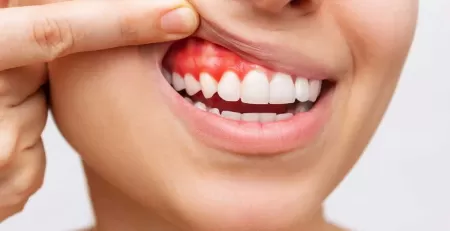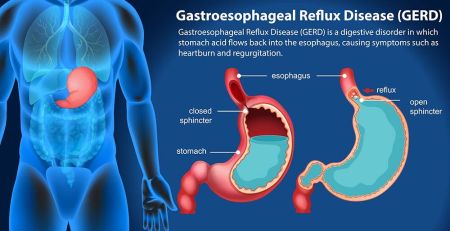Table of Contents
The association between mouth breathing, snoring, and children may not seem immediately apparent, but these conditions are more interconnected than most people realise.
While occasional snoring and mouth breathing can be expected for children, the regular occurrence can signal underlying issues that need attention.
Understanding this connection is essential as it can significantly affect a child’s growth, development, and overall health.
Understanding Mouth Breathing
Usually, people breathe through their noses. However, some children develop a habit of breathing through their mouths instead.
While this might seem harmless, chronic mouth breathing can lead to several health issues.
Mouth breathing can disrupt normal facial development, lead to crooked teeth or a misaligned bite, and even impact a child’s sleep patterns, cognitive development, and behaviour.
The Connection with Snoring
Mouth breathing is often associated with snoring in children. When a child breathes through their mouth, their airway isn’t fully open.
This can lead to snoring, the sound of air moving past relaxed tissues in the throat, causing them to vibrate.
Snoring can also indicate sleep-disordered breathing conditions, such as obstructive sleep apnea. This condition causes breathing to stop and start repeatedly during sleep due to blocked airways. It can significantly affect a child’s sleep quality and overall well-being.
7 Potential Risks of Poor Oxygen Intake and Snoring

The impact of chronic mouth breathing and snoring extends far beyond interrupted sleep.
Children who habitually breathe may experience dry mouth, increasing the risk of tooth decay and gum disease.
They may also have issues with their facial growth and development.
Sleep quality influences a child’s physical growth, immune system, and brain development.
If the child’s sleep is frequently interrupted by periods of apnea, the child may suffer from sleep deprivation. This can manifest as behavioural issues, poor academic performance, and reduced cognitive function.
Furthermore, sleep-disordered breathing conditions like sleep apnea can lead to other serious health issues, such as hypertension, heart problems, and diabetes.
Children who consistently do not get enough oxygen due to conditions like sleep apnea, mouth breathing, or other respiratory disorders may face a range of potential health risks:
1) The Impact of Insufficient Oxygen on Growth
Oxygen plays a fundamental role in the body’s growth and development.
When the body does not receive enough oxygen, it can lead to significant growth problems. This condition, often called “failure to thrive,” is characterised by a noticeable slowdown or stunting of physical growth and can have long-term implications for overall health.
2) Cognitive Effects: Learning and Behavioural Issues
Chronic oxygen deprivation doesn’t just affect physical growth; it also has profound impacts on cognitive functions.
Children and adults alike may experience difficulties in learning and concentration.
Common issues include attention deficits, hyperactivity, and other behavioural problems stemming from reduced oxygen supply to the brain.
3) Developmental Delays Due to Oxygen Deprivation
Insufficient oxygen can lead to both physical and cognitive developmental delays. This means that milestones for motor skills, speech, and mental abilities may be reached later than usual.
Chronic oxygen deprivation can thus have a lasting effect on an individual’s developmental trajectory.
4) Cardiovascular Complications from Long-term Oxygen Deprivation
Continuous insufficient oxygen levels can place significant strain on the heart.
Over time, this can lead to severe cardiovascular issues, such as pulmonary hypertension — an increased blood pressure within the lung arteries.
In the worst cases, this strain can progress to heart failure, a severe condition requiring medical attention.
5) Weakened Immune Function from Lack of Oxygen
Adequate oxygen is essential for a robust immune system.
When oxygen levels are consistently low, the body’s immune response weakens, increasing susceptibility to frequent infections and illnesses.
This can create a vicious cycle of health issues compounded by the original problem of oxygen deprivation.
6) Sleep Disturbances Linked to Insufficient Oxygen
Inadequate oxygen can severely disrupt standard sleep patterns. This disruption can manifest as insomnia, restlessness during sleep, and even night terrors.
These sleep disturbances often result in daytime sleepiness and chronic fatigue, which can affect an individual’s quality of life and daily functioning.
7) Respiratory Issues Exacerbated by Chronic Oxygen Shortage
Finally, a continuous lack of oxygen can worsen respiratory conditions such as asthma. It can also lead to the development of other respiratory complications.
The body’s struggle to obtain sufficient oxygen often manifests in various respiratory symptoms and conditions, highlighting the need for adequate oxygenation for respiratory health.
Remember, it’s crucial to consult with healthcare professionals if your child is exhibiting signs of oxygen deprivation.
Each child is unique, and these potential risks may not apply to everyone or may manifest differently.
Identifying the Problem Linked with Snoring
Parents and caregivers can play a crucial role in identifying if their child is a mouth breather or snores regularly. Look for signs such as:
- Open mouth during sleep
- Daytime sleepiness or lethargy
- Behavioural issues
- Academic problems
- Chronic runny nose or nasal congestion
- Frequent sore throats
- Pauses in breathing during sleep
If these signs are present, it is advisable to consult a healthcare professional.
Treating the Issue
Families may need to consult a medical or sleep specialist for a comprehensive diagnosis and treatment options regarding snoring and sleep issues in children.
Treatment for mouth breathing and snoring in children often involves addressing the underlying cause, which could be anything from enlarged tonsils or adenoids to allergies or structural problems with the jaw or nose.
Removing the tonsils or adenoids, treating allergies, or using special devices to facilitate nose breathing can help.
Early intervention can potentially prevent the long-term complications associated with these conditions.
Understanding the connection between mouth breathing, snoring, and children is essential for ensuring your child’s healthy growth and development.
At Amazing Smiles Dental, we work with each patient and local healthcare professionals, offering diagnosis, advice and personalised treatment plans to help address oral health issues.
We recommend seeking the help of your nearest GP healthcare specialist for proper diagnosis and treatment measures for your child’s sleep and snoring-related issues. Your GP may refer you to additional experts, including paediatricians or ear, nose, and throat specialists.
We are with you and your child every step of the way, aiming for the healthiest outcomes for your child’s smile and well-being.
Disclaimer: The information featured in this article is for general educational purposes and does not serve as a substitute for professional medical guidance, diagnosis, or therapy. Using this information for personal diagnosis or at-home treatment medication is not advisable. At Amazing Smiles, we urge individuals to seek advice from a licensed healthcare professional or a local dentist for dental health-related issues. Always consult a dentist or an appropriately certified healthcare expert for a meticulous diagnosis and customised treatment plans.




